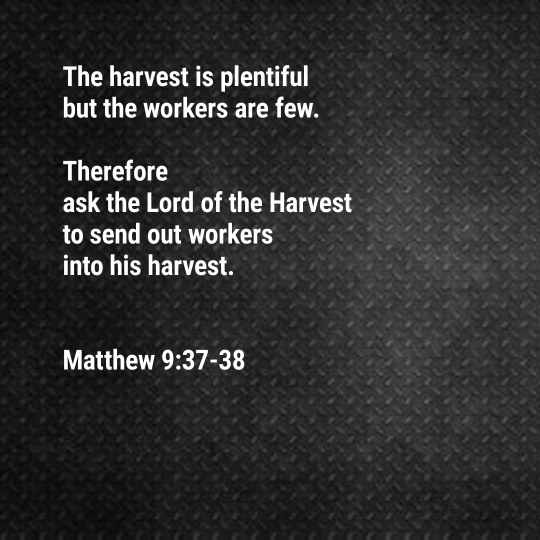#Spiritual lifestyle biblical lifestyle
Text
#Morning #Coffee #Prayer #devotional
Deuteronomy 6:4-9 New International Version
Hear, O Israel: The Lord our God, the Lord is one.[a] 5 Love the Lord your God with all your heart and with all your soul and with all your strength. 6 These commandments that I give you today are to be on your hearts. 7 Impress them on your children. Talk about them when you sit at home and when you walk along the road, when you lie down and when you…

View On WordPress
#authors#baking#Baking Fall Healthy Body Scripture Recipe Vegan Yummy Banana Bread Chef#Books#Christian#Commandments#Devotional#fashion lifestyle shoes converse chucktaylor shopping markofthebeast evil wickedness witch salem salemtrials pentagram religio#food#God Holy Worship Bible Scripture Love Faith Truth HandofGod MarkofGod#God Sabbath Saturday Holy Worship Bible Scripture Love Faith Truth HandofGod MarkofGod#healing medical God Jesus Angels Prayer Biblical Spiritual sinuses herbs congestion#healthyliving#humor#Miracles Healing#mystery#newrelease#Prayer Religion Jesus Angels Worship Praise Fact Catholic Church Baptist Scripture Motivation Revelation BooksoftheBible#reading#Religion Jesus Angels Worship Praise Fact Catholic Church Baptist Motivation Revelation#Romance#Salvation Prayer GodJesus Grace Cross Spirituality Spiritual Soul Heart Motivation#teaching teacher educator highschool school students#theprayingteacher#writing
2 notes
·
View notes
Text
#discipleship#spiritual maturity#body of christ#kingdom of god#portalsgate#Kingdom lifestyle#Advancing kingdom mandate#Apostolic ministry#Internalizing kingdom truth#Spiritual development#Kingdom priesthood#Prophetic teaching#Bile#Biblical principle#Growing your faith in Christ
0 notes
Text
Hoodoo 101 - Jezebel Root
What is Jezebel root & why is it used in Traditional Hoodoo & Vodou?
Jezebel Root is a feminine root used in traditional Hoodoo & Vodou for dominating a wealthy man, sugar daddy or powerful person and is sometimes used for hexing or cursing. This root was named after a mythical biblical figure Queen Jezebel who belonged the Omri dynasty of the Kingdom Israel in 852 BC. As a controversial figure, she was known to be extremely cunning and ruthless, using her power to gain the upper hand by any means necessary. Historically this plant has been used by ADOS who practiced Hoodoo & Vodou, for a variety of reasons. The Jezebel stereotype was an oppressive image that was used for the sexual assault and servitude of black women during chattel slavery in the US. This root was typically associated with brothels, working girls, vaudeville/showgirls and mistresses who needed to keep their bills paid and food on their tables, by attracting abundance and docility from rich clients to better their lives as a means of survival.
Today this root is still very potent and extremely beneficial for anyone who works in any type of service industry but is typically used by women seeking a luxury lifestyle via wealthy boyfriend or sugar daddy. Typically, these roots are fed or dressed in a variety of ways and placed in mojo bags, candles or other spells to manifest their intention.
Unfortunately, in modern times authentic Jezebel root has been extremely hard to come by and the majority of Jezebel root being sold on the market is actually common garden variety mulch or cherry bark. To the untrained eye it might resemble an actual root, especially when ground up. Here is a common example of fake jezebel root that you’ll typically see being sold in spiritual shops in person or online below.

Real jezebel root should not resemble bark or any type of mulch. Depending on the maturity of the root, the main root will always have multiple smaller roots sprouting from it, unless they have been clipped or shaven off. It should always look like a root! Fake jezebel root is also easy to snap and like most bark, has a dark brown center. Real jezebel root should be somewhat flexible and have a white center, when broken open.

While this is an easy to mistake to make, many trusted shops are STILL selling fake jezebel root to their clientele. I’ve always been passionate about collecting and providing authentic high-quality goods for myself and my patrons at an affordable price. So I’ve been working on a way to provide REAL Jezebel root to the public for the past few years.
I’m pleased to announce my shop will finally be offering in limited quantity plant shares of Jezebel root to purchase during the upcoming spring season of 2023 under our new indoor grow system.

Click HERE to Shop authentic Jezebel Root
Limited to one per person. We also offer Shop Installments via Affirm and accept PayPal & Apple Pay.
#hoodoo community#witches of color#jezebel#jewitchery#the love witch#hoodoo history#hoodoo#vodou#voodoo#pagan community#witches of instagram#love magick#love spells#beauty spells#striptok#black glamour#spoiled gf#luxe life#sugar bowl#sugarbabytips#high maintenance#sugaring#luxury#hypergamy#sw#304#black femininity#black self care#hbfsociety#blackluxury
164 notes
·
View notes
Text

How do you harvest for God in 2024? What methods would you use to achieve this task?
One method of harvest is your lifestyle, what you say and do and how you live your life over an extended period of time. People watch and compare lifestyles, therefore, let your light shine before others (Matthew 5:14-16).
Another method of harvest is your personal testimony, your personal experience. People relate to stories and some people will listen to your story and hear how God changed your life for the better, remember the woman at the well who changed her whole village (John 4:28-42).
A final method of harvest is sharing knowledge types in the form of biblical knowledge, historical knowledge, spiritual knowledge, ethical knowledge and theological knowledge with those you encounter. All of this information or data combined is another method that is very attractive to certain types of people who rely on faith founded on rational evidence, facts and figures, a discipline called apologetics (1 Peter 3:15).
God empower you and bless you, always.
11 notes
·
View notes
Note
What are your relationship non negotiables? I love your blog!
Good hygiene, not just basic, but good. The amount of men that go around the world with the most repulsive habits and lack of self-care towards their bodies and the environments they live in has been shocking for me to find out. I will not cohabitate with someone with repulsive behaviors of any kind. If you don't take your hygiene seriously, it lets me know that you have very little regard for your body combined with low self-awareness, and if you don't care about properly maintaining your living space accordingly, it tells me you care very little about the ones you have to share them with. I will leave at recurrent unhygienic signs.
Lack of ambition and motivation. And when I speak of ambition, I am not referring to it in the biblical sinful way of going only after money and material things, regardless of what you do in the process of getting there. But rather, I mean having a bigger vision for your life, the things you want to accomplish, and having the drive, dedication, and discipline to go after them. A man that is driven and actively working towards creating a better future for his family and himself is extremely attractive.
Generosity and wealth. Although I'm very vocal on and actively advocate for other women to strive to be independent and go-getters, I also understand that for relationships to work, there are roles and assignments each partner has to fulfill. As such, my man has to have a provider mindset and must be willing to give me the world. I don't care how much money and wealth I end up gaining in life, if I'm having a romantic relationship with a man, I'm not paying a single dime while in his presence. For this, he must be successful (and actively working towards his goals as touched upon in the previous point), but also not be stingy in any kind of way. How he treats you in relation to his money will speak volumes about his character and how he views you.
Positive mindset. The people around you affect how you view the world more than you think. A negative person can bring misery into your life if you allow yourself to internalize their ways. Your partner should be someone that has a bright outlook on life and is looking forward to building nothing but positive memories and moments with you. If they are doing the opposite, you must cut them off (this also applies to friends and family members).
Values. I will not compromise on my core values, my religious/spiritual believes, or certain strong political views for another person with different or opposite ideas. As a Christian I'm called to entertain men I'm equally yoked with, but this goes beyond believing in the same Higher Power, it includes sharing similar values about key aspects of life so that you two may align in the things you want to achieve and the lifestyle you want to live.
Fitness. This is crucial, similarly to the first point; a person who doesn't care for his physical appearance and fitness shows very little self-awareness, likely low self-esteem, and ultimately doesn't care about keeping you attracted to them, therefore, holding you in a lower regard. Putting effort into your fitness showcases values of discipline, delayed gratification, and high self-esteem, and as someone who tries to embody those things in her own personal life, I would not want a partner that does not see the value in these things as well.
459 notes
·
View notes
Text




What the Bible Says about Business
In the World, Not Of the World: What the Bible Says about Business
Song of Solomon 2:15 says, “Take us the foxes, the little foxes, that spoil the vines: for our vines have tender grapes.” Foxes sometimes in search of food would enter the grape orchards and devour the grapes and spoil the crop. However, the little foxes were too small to reach the grape bunches so they would chew on the vines and it would kill the whole vine. Instead of the farmer just losing his crop, he would lose his vine which was more disastrous. Spiritually some things we do or allow that we might think are little or insignificant can also be disastrous for us.
Business Compromises
As Christians, compromising in the workplace and our work ethics in little things is an area that can be an open door for the enemy to gain an advantage over us. This “little fox” is so commonplace that many Christians are not only failing to recognize it but are also guilty of it.
When Christian businessmen work hand and hand with Christian employees by Biblical work ethics and standards, it produces a just and fair workplace. In the past when our nation had a strong Christian influence, this combination led to our nation being known for quality workmanship. Other nations were seeking to buy merchandise with the “Made in U.S.A.” label. Because our nation as a whole has turned away from its moral standards and we have failed in our Christian influence in the workplace, everyone is suffering.
Christians are mocked because we do not exemplify a Biblical standard in our business lifestyles. How are we to witness and share the gospel of Christ if our work habits are not exemplary?
Establishing Good Work Ethics Starts At Home
Many of the younger generation were not taught proper work habits and now have difficulty in holding a job. Children’s messy rooms are a symptom of how a generation of parents has neglected to teach their children this truth while they were growing up.
We are instructed in Proverbs 22:6 to “Train up a child in the way he should go: and when he is old, he will not depart from it.”
The key in this verse is the word “training”. Training involves more than just teaching. The best teachers teach not only the procedure for doing a job but also a set of values for producing that job.
Whatever reasons we give for our neglect in training our children, the truth is we did not take the time needed to train our children properly. We are a world in a hurry which is a big hindrance to good workmanship. Slothfulness, shoddy workmanship, and disorganization reflect a lack of caring. Many people take shortcuts that hamper the quality of the job, just to finish the task so they can eliminate any problems of the moment. Later the job must be repeated which wastes time because the job was not done right the first time.
We need to teach our children not only how to do a good job, but also train them to do their best. Teaching is simply communicating knowledge, while training involves conveying a value system. Good teachers who teach moral values along with proper instruction produce quality schooling and the best workers.
If we as parents compromise our lifestyles and work ethics before our children then we communicate those ideas to them.
If we have been deceived or perhaps have just become negligent in any area of our work ethics, we could be guilty of hurting our children or our witness for the Lord.
Here is a checklist for employees to see if perhaps any “little foxes” have been spoiling our vines:
Examining what motivates us to work. Love of money, fear, duty, and necessity are some of the world’s reasons to work. Our reason should be motivated by love for our Lord.
Taking shortcuts that will lessen the finished product because of laziness or impatience. This wastes time because a job is done the quickest way and not the best way.
Hiding mistakes that are costly to others because of fear or pride.
Stealing from our employer which increases his operating costs, that in turn, causes company wages or bonuses to be less.
Working carefully to avoid carelessness to prevent accidents. Safety rules need to be obeyed which helps lower insurance costs.
Communicating properly when we have a problem with the boss, instead of gossiping about him to other employees?
Being responsible and disciplined, workers who are dependable and loyal.
Avoid slothful habits, such as tardiness and absenteeism without a cause. (Pretending to be sick just because we do not want to go to work is outright deception).
Lying about our qualifications when applying for a job causes the employer to believe we can do more than we are trained or qualified to do. (This puts the employer at risk because of inferior work that will be produced.)
Walking out on a job without proper notification.
Here is a checklist for employers or manufacturers that are also in order:
Creating inferior products because of greed. (Things that wear out quickly so they must be replaced sooner so the manufacturer will profit more.)
Representing our products falsely by exaggerated marketing ads just to make sales.
Treating our employees the way we would want to be treated. (Fair and just wages and benefits should be given to all workers without being a respecter of persons.)
Furnishing comfortable and good working conditions for our help.
Observing the Sabbath rest for all employees as well as ourselves. (Workaholics will eventually experience burnout and God knew as human beings we all need a day of rest and refreshing in the Lord.)
Terminating employees unfairly because of greed. (Often loyal older employees are replaced by younger ones at a lesser salary to avoid retirement benefits and the higher earned salary of the older worker).
Correcting our workers when necessary with kindness and grace.
Although these lists are by no means complete, this will give us a starting place to examine if we are living a Christian life in the marketplace. Notice the examples used in this list are character-related and unless people come to God and allow Jesus to change their evil nature, our nation will continue to plunge into a deteriorating workplace. We as Christians should be examples in leading the way of good work ethics in the marketplace. Sadly, many Christians fail to do this and our witness in the world is not Christian at all as we act like the rest of the world.
Many Christian employees justify their actions because they feel they are just compromising on little things that do not matter. Such things as Telling little white lies, tardiness, misusing their privileges, failing to keep their word, gossiping in the office, taking advantage of their sick leave, using the company telephone, postage, equipment, etc. for personal use, expecting salaries beyond their work production, producing sloppy work, etc.
The Christian Workplace Ministry
Christian employers who violate God’s principles are guilty too, of wrong treatment of employees, improper conduct, unfair wages, overworking employees, failure to supply safe working conditions, ignoring communication problems, and unjustly terminating employees.
The Word of God tells us how we can please God in the workplace in Matthew 25:23, “His lord said unto him, Well done, good and faithful servant; thou hast been faithful over a few things, I will make thee ruler over many things: enter thou into the joy of thy lord.” Being faithful to the little things will encourage us to rule over larger things. The same is true on the negative side, neglect in little things can cause big problems. May the Lord show us the “little foxes” in our workplaces that are creating big problems.
We must remember as Christians our ministry is to live the Christian life anywhere, we are. The most important thing is our relationship with people. We must guard and watch our attitude in the office toward another as well as our outreach to the people God sends us to be a witness. Remember the Golden Rule: “Do unto others as you would have them do unto you” (Luke 6:31).
We need to strive for excellent work and be like our Lord. Scriptures that pertain to the workplace that we all need to keep in mind are as follows:
Isaiah 12:5: “Sing unto the Lord; for he hath done excellent things: this is known in all the earth.”
Colossians 3:17: “And whatsoever ye do in word or deed, do all in the name of the Lord Jesus, giving thanks to God and the Father by him.”
Colossians 3:23: “And whatsoever ye do, do it heartily, as to the Lord, and not unto men.”
Ecclesiastes 9:10: “Whatsoever thy hand findeth to do, do it with thy might.”
Luke 16:10: “He that is faithful in that which is least is faithful also in much: and he that is unjust in the least is unjust also in much.”
Proverbs 11:1: “A false balance is an abomination to the LORD: but a just weight is his delight.”
1 John 2:5-6: “But whoso keepeth his word, in him verily is the love of God perfected: hereby we know that we are in him. He that saith he abideth in him ought himself also so to walk, even as he walked.”
Ephesians 6:5-9: “Servants, be obedient to them that are your masters according to the flesh, with fear and trembling, in singleness of your heart, as unto Christ; Not with eyeservice, as men-pleasers; but as the servants of Christ, doing the will of God from the heart; With good will doing service, as to the Lord, and not to men: Knowing that whatsoever good thing any man doeth, the same shall he receive of the Lord, whether he be bond or free. And ye masters, do the same things unto them, forbearing threatening: knowing that your Master also is in heaven; neither is their respect of persons with him.”
Romans 12:10-11: “Be kindly affectioned one to another with brotherly love; in honor preferring one another; Not slothful in business; fervent in spirit; serving the Lord.”
From: Steven P. Miller @ParkermillerQ, gatekeeperwatchman.org
Founder of Gatekeeper-Watchman International Groups,
Sunday, March 10, 2024, Jacksonville, Florida., USA.
X ... @ParkermillerQ
#GWIG, #GWIN, #GWINGO, #Ephraim1, #IAM, #Sparkermiller, #Eldermiller1981
GROUP: https://www.facebook.com/groups/Sparkermiller.JAX.FL.USA
3 notes
·
View notes
Text
Navigating the Postmodern Malaise

In the postmodern context, the emphasis on individualism and subjective experience can lead to a sense of fragmentation and isolation. As society places a higher value on personal autonomy and self-expression, communal bonds and shared values can become weakened. This fragmentation can manifest in various ways: in the disintegration of traditional community structures, in the rise of virtual relationships over physical ones, and in the feeling that one's personal experiences and struggles are unique and incomprehensible to others.
Likewise, the digital age, characterized by the rapid dissemination of information and a multitude of choices in every sphere of life, can lead to feelings of being overwhelmed. The constant barrage of news, opinions, and data can make it difficult for individuals to process information effectively or to make informed decisions. Additionally, the abundance of choices �� from career paths to consumer goods, to lifestyle options – can result in decision paralysis and anxiety. This overwhelm is often exacerbated by the perception that one must make the perfect choice in every situation, leading to increased stress and indecision.
Dealing with the fragmentation of the post-modern era, particularly from a Christian perspective, involves understanding and addressing the underlying philosophical shifts and the ways they impact society and individual lives.
Here are some thoughts and proposed solutions:
I. Emphasis on Biblical Authority: Post-modernism often challenges the idea of absolute truths, promoting relativism. A Reformed approach would emphasize the authority of the Bible as the ultimate source of truth, encouraging individuals and communities to ground their beliefs and principles solidly in scriptural teachings.
II. Community Engagement: The individualistic focus of post-modern culture can lead to isolation and fragmentation. Churches and Christian communities can counteract this by fostering a sense of community, where individuals are encouraged to live in fellowship, accountability, and mutual support, reflecting the biblical model of the church (Acts 2:42-47).
III. Education and Discipleship: Addressing post-modern challenges requires intentional Christian education and discipleship. This involves teaching believers to understand and apply biblical principles in every area of life, helping them to discern and navigate the complex moral and philosophical landscape of today's world.
IV. Cultural Engagement: Instead of withdrawing from the world, Christians should engage with culture thoughtfully and critically. This means understanding contemporary cultural trends and dialoguing with them from a biblical standpoint, always ready to give an answer for the hope within us with gentleness and respect (1 Peter 3:15-16).
V. Promoting a Biblical Worldview: Encouraging Christians to develop and maintain a biblical worldview is crucial. This involves seeing and interpreting every aspect of life – personal, social, political, economic – through the lens of Scripture. This perspective helps believers to understand and address the fragmentation and relativism inherent in post-modern thought.
VI. Pastoral Care: Acknowledging and addressing spiritual issues, often exacerbated by the fragmentation of post-modern life, is vital. Churches and Christian communities can offer pastoral care, counseling, and support networks that provide a holistic approach to wellbeing, rooted in a biblical understanding of the human person.
VII. Technological Discernment: In the digital age, technology can both contribute to and alleviate the sense of fragmentation. Churches and believers need to develop discernment about the use of technology, recognizing its benefits for communication and education while being wary of its potential to isolate and mislead.
VIII. Promotion of Inter-generational Relationships: One solution to counteract the fragmentation is to encourage inter-generational relationships within the church. This allows for the wisdom of older generations to be passed down, and for younger generations to bring new perspectives, fostering mutual understanding and unity.
IX. Historical Connection: Creeds and confessions provide a tangible link to the past, connecting contemporary believers with the rich heritage of the Christian faith. Understanding the struggles, questions, and resolutions of Christians in different historical contexts helps in realizing that many of our contemporary issues are not entirely new. This historical perspective can foster a sense of continuity and belonging.
In an era marked by relative truth and a plurality of beliefs, creeds and confessions offer clear, concise statements of core Christian doctrines. This clarity helps believers to understand and articulate their faith more confidently, which is particularly valuable in a fragmented and often confusing cultural landscape.
Likewise, creeds and confessions serve as anchors, preventing drift from essential Christian truths in the face of cultural pressures and trends. They remind believers of the core tenets of their faith, helping to maintain a distinct Christian identity in a rapidly changing world.
Many of the creeds and confessions were formed in times of persecution, conflict, or theological controversy. Studying them can offer encouragement and perspective during personal or communal trials, reminding believers of God’s faithfulness throughout history. By rooting themselves in these enduring expressions of faith, believers can find a stable foundation and a clearer path for navigating the complexities of contemporary life.
X. Global Perspective: Recognizing the global nature of the Christian church can help counteract the fragmentation and provincialism of post-modern culture. Engaging with Christians from diverse cultures can enrich understanding and foster a larger view of the kingdom of God. (Revelation 5:9)
XI. Prayer and Dependence on God: Lastly, in all efforts to navigate and address the challenges of the post-modern era, prayer and dependence on God are essential. Recognizing our limitations and God’s sovereignty, Christians should seek divine wisdom and guidance in all endeavors to be salt and light in the world (Matthew 5:13-16).
In summary, a Reformed Christian response to the fragmentation of the post-modern era involves a strong commitment to biblical authority, community engagement, cultural dialogue, education, pastoral care, technological discernment, inter-generational relationships, a global perspective, and, above all, prayerful dependence on God.
3 notes
·
View notes
Note
Hi gorgeous… I pray you’re doing well. I pray you reach out to the One True God Jesus… unfortunately worshiping all these other “gods” just leads us further into destruction and doesn’t really feed our souls… Jesus is not the religion that hurts people and I’m sorry if that’s been your experience but a direct connection with the Spirit of God will guide you and fulfil you in ways you never thought possible.. God bless you beautiful. Please don’t be afraid to pray to Jesus and just give it a try… whether that be now or later…
If you don’t know what to say, here’s a prayer for you…
“Dear God,
I pray you come into my life and show me the way. Please guide me with Your Spirit and lead me in Your Truth.
In Jesus’ name
Amen”
God bless you beautiful. Jesus loves you so much
Oh dear friend you’ve caught me on my lunch break. I have the time.
You think you’re doing me a favor by coming into my inbox and preaching Jesus behind a grey face but you’re really not. See, had I not been through a lot of therapy I’d probably be furious and trauma triggered right now. I mean I won’t lie I’m a little annoyed but like I said, I’ve got the time.
But honestly? I just feel bad for you. Because this was the only way you’ve been taught to believe and this is the only way you’ve been taught to act. How much success has this tactic gotten you? People probably haven’t responded well in the past because no one likes being proselytized to be totally honest.
Feels bad, huh? Like the whole world is cruel and evil and this must truly be the only way because people are so mean when you’re just trying to save them. But the reality is, people are good and kind too, but people don’t like being told their belief systems are wrong.
See, you don’t know me. And I don’t know you but I can make some assumptions because I’ve been in your shoes. I’ve been the person who sees someone who has “strayed from the path” and goes “I’m praying for you” but again, it doesn’t actually help.
I grew up evangelical, probably a lot like you. And I’ll say it, I was a good Christian. I did mission trips to Africa, to Europe. I served in my community, did children’s programming, camp counseling. I went to college and got a degree in Biblical studies because I just loved God so much.
So what changed and why did I leave? After all it was people and not God, right? Well, yes and no. I left mostly because of the hypocrisy. I read a Jesus who loved the poor and stood for the oppressed while watching my classmates and professors speak out against marginalized communities in the name of Jesus.
So yes, people hurt me in the name of Jesus.
But so did God.
See, I believed that if I didn’t believe in God the right way I’d go to hell for eternity. That I could only be happy if I had Jesus in my life. And I was super depressed and it felt like I was in an abusive relationship with God.
“You’re nothing without me. Everything good in your life is because of me. Everything bad is from the enemy or I’m teaching you a lesson. You are inherently evil without me. Love me or burn forever.”
That didn’t feel like love to me - because it’s not. I realized if a human was telling me those things I’d call it abuse. Why would I let God say those kinds of things to me if I wouldn’t tolerate humans saying it to me?
So I left. And yeah, I’ve wandered to different gods. I’ve experienced too many spiritual things to deny the existence of higher powers and spirituality. But God and I are back on speaking terms now at least, and frankly I believe whatever makes you love your neighbor more is God, whether that be under the name of science and atheism or under the name of Jesus.
Here’s the thing. You can repent of this lifestyle of arrogance that causes you to come anonymously into the inbox of a queer mystic to preach evangelism 101. I don’t need your version of God because I already have God in my life.
Because here’s the thing about loving your neighbor: your neighbor also gets to choose what love looks like to them, too. And most people are not going to say that anonymous proselytization feels loving to them. It actually comes across as tone deaf and judgmental. I know that probably isn’t your heart - I have no doubt you do what you do out of a sense of love and obligation.
Because I want you to understand the harm your rhetoric can cause, I’m also going to tell you how to love me.
First of all be kind and listen to me.
Secondly, go bake something for someone physically near your location. Go make some chili for your neighbor. It’s cold out where I live, homemade goods are always nice when it’s cold.
Find your nearest food shelter and ask what they need - I hear menstrual products are always needed. Ask if they need volunteers!
Donate an eSIM to Gaza or to another organization working for a free Palestine.
If you don’t have access to any of that, just text a friend and tell them you love and appreciate them. I promise you will be the hands and feet of Jesus more by doing those things rather than telling me that I’m wrong. Because truth be told you have no clue my spiritual path because I keep a lot of it to myself these days. And I like where my path is leading me so far because it encourages me to stand up for myself but also love others more. How can that be anything but God if it’s bringing more love to the world?
I pray that you find peace and happiness in your faith, but also that you stop acting with pride. I pray you may be saved from the same despair and disenchantment I faced and also recognize the harm that can be done by being dismissive toward religious trauma. I’m willing to share those experiences if you have more questions. God loves you, and I hope you can see that I am also loved and made in the image of God even if my beliefs differ from yours.
May God bless you, truly.
2 notes
·
View notes
Note
Oh, my bad, you're way too down the rabbit hole to speak with actually. But that's the problem when religion is brought into the mix. It is, by nature, a system of blind belief over the physical world, and I was trying to discuss what affects the physical world. I'd rather care about my fellow man in the here and now, with less to answer for on judgment day than you. Some of the best (but still strict) Christians I've met in life will say they don't agree with a lifestyle, but it's none of their business. And never say another word. But those are good people.
I actually wasn't raised in a rigid household. If you interpreted anything correctly (hah), you'd see that my mom didn't adhere to such strict teachings. She always let us follow our own path while still taking us to church and teaching compassionate morals outside of religion. It led to us thinking for ourselves enough to see right from wrong, regardless of allegiance. Which is how I'm allowed to believe in a higher power and still despise the absolute and UNNECESSARY hatred being focused on people in the queer community. (Which I don't even belong to. I just have, you know, compassion.) It's someone else's life. If they're not hurting anyone, why should I get to control it? Why would I even want to? How do you not see that all of the recent backlash against the trans community is nothing but the Republican Party blowing the scope of a community (half a percent of the population) out of the water to win political favor. With public opinion in majority favor of gay rights and Roe v Wade repealed, they needed something to galvanize the base.
Anyway, Target moved pride displays to the back to protect their customers from documented violent threats, which is more humanity than I see in modern Christians. And Target is a lifeless corporation. That's how low the bar is. Disgusting and disturbing.
Just don't act like you won any debate (as if we could have one, I now understand) when all you did was say, "So anyway, religion." You didn't argue or refute anything I said with fact. You will continue to use the Bible only as a tool to hate things which confuse you and ignore the sins you don't care about. (And won't even mention when addressed.) And no, even by Biblical standards, I have nothing for which to repent, so I don't think I will.
Well first, that’s not what faith is…
youtube
Moving on:
Because it’s not my morality, it’s not about what I want. It’s about God’s holiness and commands. Also, you jump from your household to Christians to the Republican Party in about 100 words which makes responding to any single misconception about any of those things difficult, which I know is the point.
The issue here is you think you have independent thought rather than the only two options— being of Christ or being of the serpent. Which, if you were raised with the Bible and know it as you claim, should be the basis of your understanding. However, again, you’ve proven not to be qualified to discuss hermeneutics.
Not once in any of this have I condoned being aggressive towards anyone nor even commented on it. That’s a very big jump and assumption of my beliefs, which you’ve never inquired about only assumed thus far.
I also have compassion for those involved in all of this. At no point do I wish them harm or pain or damnation. This is one of the reasons I will not lie to them and seek their spiritual life and redemption. I will share the truth in love, but I will not lie to them and harm them by encouraging delusions or sin. (That’s why they tell me to die in my inbox weekly.)
I haven’t been debating you, you’re right, because none of the arguments presented have been valid. They’re all either strawmen, blatant misunderstandings or false assumptions, or personal attacks. Your definition of hate is incorrect to begin with and if your presuppositions are flawed. I haven’t been confused this entire time, and your responses have been quite predictable honestly. You’re not saying anything I haven’t encountered in my years of genuinely studying scripture. It’s quite bold of you to think an anonymous ask on tumblr of all places will make me stumble.
Your final disqualification for attempting to correct me on anything biblical is your last sentence— if you genuinely don’t believe you have anything to repent for from a biblical view, then you do not understand the Bible in any capacity.
#you can’t win a game you weren’t playing#I’m not debating you#I’m seeing just how much time and effort you’re willing to exhaust in my inbox#my biggest fans
11 notes
·
View notes
Text
#Morning #Coffee #Prayer #devotional
Deuteronomy 6:4-9 New International Version
Hear, O Israel: The Lord our God, the Lord is one.[a] 5 Love the Lord your God with all your heart and with all your soul and with all your strength. 6 These commandments that I give you today are to be on your hearts. 7 Impress them on your children. Talk about them when you sit at home and when you walk along the road, when you lie down and when you…

View On WordPress
#authors#baking#Baking Fall Healthy Body Scripture Recipe Vegan Yummy Banana Bread Chef#Books#Christian#Commandments#Devotional#fashion lifestyle shoes converse chucktaylor shopping markofthebeast evil wickedness witch salem salemtrials pentagram religio#food#God Holy Worship Bible Scripture Love Faith Truth HandofGod MarkofGod#God Sabbath Saturday Holy Worship Bible Scripture Love Faith Truth HandofGod MarkofGod#healing medical God Jesus Angels Prayer Biblical Spiritual sinuses herbs congestion#healthyliving#humor#Miracles Healing#mystery#newrelease#Prayer Religion Jesus Angels Worship Praise Fact Catholic Church Baptist Scripture Motivation Revelation BooksoftheBible#reading#Religion Jesus Angels Worship Praise Fact Catholic Church Baptist Motivation Revelation#Romance#Salvation Prayer GodJesus Grace Cross Spirituality Spiritual Soul Heart Motivation#teaching teacher educator highschool school students#theprayingteacher#writing
2 notes
·
View notes
Video
youtube
(via OCCUPY TILL HE RETURN. ARCHITECT OF THE FUTURE; ENGINEERING TOMORROW. PART 5)
#occupy till christ returns#Kingdom lifestyle#Spirituality#Biblical Principle#Kingdom advancement#Prophetic word for 2024#Vision 2024#Prophetic sight#Discipleship
0 notes
Text
The attributes of God: Grace
Part 3 How ought we to live in the light of God's grace?
Because God’s grace and blessings lead to eternal life, how then should we be living?
Romans Chapter 6 is a go to chapter for how to live in the light of God's grace.
Romans 6:1 What shall we say then? Shall we continue in sin, that grace may abound? God forbid. How shall we, that are dead to sin, live any longer therein?i
Romans 6:4 Therefore we are buried with him by baptism into death: that like as Christ was raised up from the dead by the glory of the Father, even so we also should walk in newness of life. Knowing this, that our old man is crucified with him, that the body of sin might be destroyed, that henceforth we should not serve sin.7 For he that is dead is freed from sin.
Paul here in Romans chapter 6 shows the biblical approach to our lives that we are to live in absolute, loving dedication to God the Father and Jesus Christ.
We do this by walking in obedient faith through grace.
Romans 6:11 Likewise, do not yield your members as instruments of unrighteousness to sin; rather, yield yourselves to God as those who are alive from the dead and your members as instruments of righteousness to God.
6:12 For sin shall not rule over you, because you are not under law, but under grace.
Now we can clearly see how we are to live our lives before God the Father.
We are to do so as if we were alive from the dead; in willing, loving submission to God,
and to live according to the will and grace of God. You may recall the childhood hymn 'O what can little hands do to please the king of heaven'? In this hymn the child's hands are to be used to meet someone's need, their lips for praise and words of kindness, their eyes for looking up to heaven and reading the bible, and lastly, their little hearts can love their Maker, Saviour, and Friend. Such grace to mine be given! This is an example of using our members (all our faculties and senses) as instruments of righteousness. Such grace also to mine be given!
Ephesians 1:2 Grace and peace be to you from God our Father and the Lord Jesus Christ.
3. Blessed be the God and Father of our Lord Jesus Christ, Who has blessed us with every spiritual blessing in the heavenly things with Christ.
4. According as He has chosen us in Him before the foundation of the world, in order that we might be holy and blameless before Him in love.
5. Having predestinated us for sonship to Himself through Jesus Christ, according to the good pleasure of His own will,
6. To the praise of the glory of His grace, wherein He has made us objects of His grace in the Beloved Son.
7. In Whom we have redemption through His blood, even the remission of sins, according to the riches of His grace,
This chapter brings out many facets of God’s glorious GRACE.
Everything that the apostle Paul speaks of in this chapter is part of and is an expression of God the Father’s GRACE through JESUS CHRIST!
Chapter 1 goes on to reveal wonderful blessings to each believer.
Practical Conclusions- how ought we live in the light of God's grace?
Be grateful that God has poured his grace into your life.
Celebrate His amazing grace.
Refuse to live in sin by considering your old man ‘crucified, dead, and buried’.
But rather walk in newness of life and being holy and blameless before Him in love.
Such a lifestyle reflects how wonderful God was/is treating us as the targets/objects of His grace.
2 Corinthians 12:9 And he said unto me, My grace is sufficient for thee: for my strength is made perfect in weakness…
Remember that the same sufficiency of grace that the Lord supplied Paul with, is ever available to you. The grace of God enables us to overcome sin and enter the victories that Jesus Christ has prepared for us.
The grace of God is our enabler and only comes through Jesus Christ.
Amen
Prayer

#christianity#bible study#bibletruth#blog post#blessings#psalmonesermons#faith#victory#amazing grace#living in God's grace
3 notes
·
View notes
Text
Places to Visit in Hagia Sophia
Nestled in the heart of Istanbul, Turkey, Hagia Sophia stands as an architectural marvel and a testament to the intersection of history, culture, and religion. Originally built as a Byzantine cathedral in the 6th century, it later transformed into an imperial mosque during the Ottoman era, and today, it stands as a cherished museum, captivating millions of visitors from across the globe. This article will take you on a mesmerizing journey through the historical significance, architectural wonders, and cultural heritage of Hagia Sophia Museum.
1. The Historical Significance:
Hagia Sophia, known as Ayasofya in Turkish, holds an unparalleled historical significance. It was commissioned by Emperor Justinian I in 537 AD and remained the largest cathedral in the world for nearly a thousand years. The edifice served as the principal religious center of Eastern Christianity for centuries, witnessing numerous imperial coronations and religious ceremonies.
2. The Architectural Marvel:
Hagia Sophia's architectural brilliance lies in its unique blend of Byzantine and Ottoman design elements. The massive dome, an engineering marvel of its time, symbolizes the grandeur of the Byzantine era. The dome appears to float effortlessly, supported by an innovative system of pendentives. The interior is adorned with intricate mosaics, depicting religious figures and events from Christianity's early history, adding to the cathedral's splendor.
3. Transformation into a Mosque:
With the conquest of Constantinople by the Ottoman Sultan Mehmed II in 1453, Hagia Sophia underwent a significant transformation. The cathedral was converted into an imperial mosque, and Islamic architectural elements were integrated, including the addition of minarets and the construction of the mihrab and minbar. Despite these changes, many of the original Christian mosaics were preserved, underscoring the structure's unique historical duality.
4. The Call to Prayer and Its Melody:
For nearly five centuries, Hagia Sophia resounded with the Islamic call to prayer, a captivating melody that echoed through the vast interior. The juxtaposition of the Arabic calligraphic inscriptions alongside the Byzantine mosaics created a harmonious blend of religious expressions, symbolizing Istanbul's multicultural heritage.
5. Transformation into a Museum:
In 1935, under the orders of Turkey's visionary leader, Mustafa Kemal Atatürk, Hagia Sophia was transformed into a museum as part of the country's modernization efforts. This decision aimed to preserve the cultural heritage of the monument and transform it into a symbol of unity, open to people of all faiths and backgrounds.
6. The Interior Splendor:
Step inside Hagia Sophia Museum, and you will be awe-struck by the grandeur that awaits. The vast central nave leads the eye upward to the stunning dome, adorned with Islamic calligraphy. Wander through the galleries to admire the breathtaking mosaics and frescoes that depict biblical scenes, saints, and emperors. Each intricate detail is a testament to the skilled craftsmanship of the artisans of bygone eras.
7. The Omphalion:
One of the most fascinating features within the museum is the Omphalion, a circular marble slab at the center of the building. It marks the spot where Byzantine emperors were crowned and is steeped in historical and spiritual significance. Visitors often stand on this sacred spot, contemplating the weight of history beneath their feet.
Suggested Read: Hagia Sophia: A UNESCO World Heritage Site and Turkey’s Jewel in the Crown
8. The Tombs and Library:
Hagia Sophia Museum houses the final resting places of several Ottoman Sultans and their families. These beautifully decorated tombs provide a glimpse into the opulent lifestyle of the Ottoman rulers. Additionally, the museum boasts a library that contains a vast collection of rare manuscripts and religious texts, making it a treasure trove for researchers and scholars.
Conclusion:
Hagia Sophia Museum stands as a living testament to the richness of human history and the intermingling of cultures through the ages. Its awe-inspiring architecture, historical significance, and cultural heritage have earned it the distinction of being a UNESCO World Heritage Site. As you traverse the halls of this magnificent structure, you will be transported through time, experiencing the echoes of civilizations that have left an indelible mark on Istanbul's landscape. Hagia Sophia Museum is not merely a destination; it is a journey into the heart and soul of humanity.
2 notes
·
View notes
Photo










National Love a Tree Day
National Love A Tree Day is celebrated every year on May 16 and it falls right in the middle of Garden for Wildlife Month. Did you know trees actually didn’t exist for the first 90% of Earth’s history? Shocking, isn’t it? Before trees, our Earth had fungi that grew 26 feet tall and resembled trees. Trees have played an irreplaceable role in the smooth functioning of our environment and celebrating this special day dedicated to them is the least we can do to appreciate them.
History of National Love a Tree Day
Trees can be thousands and thousands of years old with many species tending to have long lifespans. In fact, trees can be traced back to the creation of the world, according to the Bible and the story of Adam and Eve who ate the fruit of the Tree of the Knowledge of Good and Evil.
From well-preserved cellular anatomy, it has been found that Cladoxylopsida were the first species of large trees to appear on Earth almost 400 million years ago in the Devonian period. The other earliest trees were known to be tree ferns, horsetails, and lycophytes and, currently, it is estimated that there are close to three trillion mature trees in the world.
Trees have so many benefits — they provide us with lumber, food, nuts, oxygen to breathe, home for wildlife, and much more. Trees are even used for ornamental and decoration purposes. In the United States itself, there are approximately 766 million acres of forest land.
Trees form an essential part of our environment and, over the years, their importance has been taught to children growing up. Even in recent times, individuals have become so environmentally conscious that a sustainable lifestyle to protect our trees has become the norm. Most people now want to protect and preserve our trees, which make the world a better and safer place to live in.
While the hunt to find the origins of this day is still on, an entire day of appreciation for trees that have given us so much is the least we can do.
National Love a Tree Day timeline
1800 Christmas Tree Tradition
European nobles and officials adopt and popularize the tradition of setting up evergreen conifer trees in homes for Christmas.
1830 –1860 Joshua Tree’s Name
These plants get their name from Mormon settlers as the shape of the tree’s branches reminds them of a biblical passage wherein Joshua raises his hands to the sky in prayer.
1994 Wollemia Trees Found
A few survivors of these ancient trees that were once thought to be extinct are found living in a temperate rainforest in Australia.
2007 First Tree Fossil
Fossils of probably the first tree, Wattieza, that date back to the middle Devonian period, are found in New York State.
National Love a Tree Day FAQs
What day is Tree Day?
Arbor Day occurs on the last Friday in April.
What is World Tree Day?
World Tree or Forest Day is celebrated annually on 21 March.
How are trees important?
They give us clean water to drink, air to breathe, shade, and food for humans, animals, and plants. They provide habitats for numerous species of fauna and flora, firewood for cooking and heat, materials for buildings and places of spiritual, cultural, and recreational importance.
How To Celebrate National Love a Tree Day
Hug a tree
Plant a tree native to your area
Go for a walk in the woods
Release your inner tree hugger and go hug some trees to show them your love. Make sure you do it in front of some people so you can inspire them to show their love to these gentle giants too!
Do some quick research on trees that are native to your area. Once done, you can go ahead and purchase some seeds for that tree and plant them. Put in an effort to look after it as much as possible and see the fruits of your labor grow, literally.
Trees are a vital part of nature and exist all around us. Why not spend the day among trees to celebrate? Go for a walk in the woods and soak in the beauty of trees.
5 Facts About Trees That Will Blow Your Mind
The oldest tree
Space travel
They save you money
Trees can communicate
Trees are very thirsty
A bristlecone pine tree named Methuselah has lived for more than 4,800 years and is older than the Egyptian Pyramids.
Trees have kind of traveled to space when tree seeds were taken up by Apollo 14 astronauts.
Having a mature tree’s shade near your house can actually help to reduce your home cooling bill by approximately 20% in the summer.
It has been found that trees start producing a chemical called phenolics when they detect an insect raid, which acts as a signal for other trees.
An average tree can drink up to almost 530 gallons of water annually.
Why We Love National Love A Tree Day
Trees keep our streets and homes cooler
It helps to reconnect with Earth
Trees are a habitat for wildlife
Urban areas can get significantly hot and even more so in summer. This is when our loving trees come to the rescue! The shade and water vapor provided by trees can keep urban areas so much cooler. National Love A Tree Day is a perfect opportunity to acknowledge the importance of this green cover.
Planting a tree or simply taking care of existing trees can evoke a sense of belonging with nature. Trees are nature, after all, and spending time with them can help you reconnect with Earth. National Love a Tree Day can be a good place to start if you’ve been feeling a disconnect with nature and life outside of routine work.
Of course, we know that a lot of animals live in the forests and need trees for survival. Trees are home to a diverse range of birds, insects, and mammals. A simple tree will also house hundreds or thousands of small creatures like snakes, frogs, millipedes, ants, termites, spiders, to name a few. National Love a Tree Day helps us appreciate these beauties that are essentially home to so many living beings.
Source
#Japanese Pagoda Tree#Louis M. Martini Winery#Freemark Abbey Winery#Napa Valley#Beringer Vineyards#Eucalyptus dalrympleana#Cline Family Cellars#Grand Mesa National Forest#Yosemite National Park#Mesa Verde National Park#California live oak#California#Colorado#USA#summer 2022#original photography#landscape#tourist attraction#vacation#countryside#National Love a Tree Day#NationalLoveaTreeDay#16 May#flora#nature
3 notes
·
View notes
Text

MUSIC IS NOT WORSHIP by Lynette Hughes:
For most Christians, worship has become exclusively synonymous with music and singing, but there’s not one reference in Scripture that connects the word ‘worship’ to music. Contrary to what most believe, singing and worship are not synonyms. I do not say this to disparage spiritual musical expression in any way, but worship goes far beyond music and singing. Worship is not a style of music; it is not a sound, it’s not a mood experience.
Music can stir our hearts and break through our apathy and hardness of heart. It can prepare us to receive the teaching of God’s Word and to minister to each other as prompted by the Holy Spirit. However, contrary to our misconception, worship is not just getting out the musical instruments, dimming the lights and praising the Lord. True worship is far more than just singing.
The word ‘worship’ is first found in Genesis 22:5. Abraham and Isaac are headed up the hill to the altar where Abraham planned to sacrifice Isaac in obedience to God’s command. At the base of Mount Moriah, Abraham turns to the servants who had traveled three long days with him and says, “Stay here with the donkey. We will WORSHIP and then we will come back to you.” [Genesis 22:5 NIV]
Using our contemporary, musical definition of worship, we should be surprised that we don’t hear Abraham turn to Isaac and say, “Hey son, can you grab my guitar and tambourine, and the song sheets? We’ve got some worship to do.” But there’s no singing or music involved in this worship service. They didn’t hike up Mount Moriah to sing beautiful songs to God. They marched up the rocky slope of that barren mountain to simply obey God by faith. Abraham models for us the very essence of true, biblical worship; Scripture characterizes Abraham’s ‘worship’ as unwavering obedience. Obedience is synonymous with worship.
I want to summarize with these final thoughts: In most churches, today the concept of worship has been defined and narrowed down to mean the time when believers come together to sing songs that honor Christ and glorify God. Praising with words is an expression of worship, but worship is more than an expression, it is a lifestyle of obedience, not a church service. Obedience is synonymous with worship. Anything we do, because God has commanded it, is worship. Worship is choosing to actively glorify God with our lives seven days a week.
4 notes
·
View notes
Text
What the Bible Says about Business

What the Bible Says about Business
Song of Solomon 2:15 says, “Take us the foxes, the little foxes, that spoil the vines: for our vines have tender grapes.” Foxes sometimes in search of food would enter into the grape orchards and devour the grapes and spoil the crop. However, the little foxes were too small to reach the grape bunches so they would chew on the vines and it would kill the whole vine. Instead of the farmer just losing his crop, he would lose his vine which was more disastrous. Spiritually some things we do or allow that we might think are little or insignificant can also be disastrous for us.
Business Compromises
As Christians, compromising in the workplace and our work ethics in little things is an area that can be an open door for the enemy to gain an advantage over us. This “little fox” is so commonplace that many Christians are not only failing to recognize it but are also guilty of it.
When Christian businessmen work hand and hand with Christian employees by Biblical work ethics and standards, it produces a just and fair workplace. In the past when our nation had a strong Christian influence, this combination led to our nation being known for quality workmanship. Other nations were seeking to buy merchandise with the “Made in U.S.A.” label. Because our nation as a whole has turned away from its moral standards and we have failed in our Christian influence in the workplace, everyone is suffering.
Christians are mocked because we do not exemplify a Biblical standard in our business lifestyles. How are we to witness and share the gospel of Christ if our work habits are not exemplary?
Establishing Good Work Ethics Starts At Home
Many of the younger generation were not taught proper work habits and now have difficulty in holding a job. Children’s messy rooms are a symptom of how a generation of parents has neglected to teach their children this truth while they were growing up.
We are instructed in Proverbs 22:6 to “Train up a child in the way he should go: and when he is old, he will not depart from it.”
The key in this verse is the word “training”. Training involves more than just teaching. The best teachers teach not only the procedure for doing a job but also a set of values for producing that job.
Whatever reasons we give for our neglect in training our children, the truth is we did not take the time needed to train our children properly. We are a world in a hurry which is a big hindrance to good workmanship. Slothfulness, shoddy workmanship, and disorganization reflect a lack of caring. Many people take shortcuts that hamper the quality of the job, just to finish the task so they can eliminate any problems of the moment. Later the job must be repeated which wastes time because the job was not done right the first time.
We need to teach our children not only how to do a good job, but also train them to do their best. Teaching is simply communicating knowledge, while training involves conveying a value system. Good teachers who teach moral values along with proper instruction produce quality schooling and the best workers.
If we as parents compromise our lifestyles and work ethics before our children then we communicate those ideas to them.
If we have been deceived or perhaps have just become negligent in any area of our work ethics, we could be guilty of hurting our children or our witness for the Lord.
Here is a checklist for employees to see if perhaps any “little foxes” have been spoiling our vines:
Examining what motivates us to work. Love of money, fear, duty, and necessity are some of the world’s reasons to work. Our reason should be motivated by love for our Lord.
Taking shortcuts that will lessen the finished product because of laziness or impatience. This wastes time because a job is done the quickest way and not the best way.
Hiding mistakes that are costly to others because of fear or pride.
Stealing from our employer which increases his operating costs, that in turn, causes company wages or bonuses to be less.
Working carefully to avoid carelessness to prevent accidents. Safety rules need to be obeyed which helps lower insurance costs.
Communicating properly when we have a problem with the boss, instead of gossiping about him to other employees?
Being responsible and disciplined, workers who are dependable and loyal.
Avoid slothful habits, such as tardiness and absenteeism without a cause. (Pretending to be sick just because we do not want to go to work is outright deception).
Lying about our qualifications when applying for a job causes the employer to believe we can do more than we are trained or qualified to do. (This puts the employer at risk because of inferior work that will be produced.)
Walking out on a job without proper notification.
Here is a checklist for employers or manufacturers that are also in order:
Creating inferior products because of greed. (Things that wear out quickly so they must be replaced sooner so the manufacturer will profit more.)
Representing our products falsely by exaggerated marketing ads just to make sales.
Treating our employees, the way we would want to be treated. (Fair and just wages and benefits should be given to all workers without being a respecter of persons.)
Furnishing comfortable and good working conditions for our help.
Observing the Sabbath rest for all employees as well as ourselves. (Workaholics will eventually experience burnout and God knew as human beings we all need a day of rest and refreshing in the Lord.)
Terminating employees unfairly because of greed. (Often loyal older employees are replaced by younger ones at a lesser salary to avoid retirement benefits and the higher earned salary of the older worker).
Correcting our workers when necessary, with kindness and grace.
Although these lists are by no means complete, this will give us a starting place to examine if we are living a Christian life in the marketplace. Notice the examples used in this list are character-related and unless people come to God and allow Jesus to change their evil nature, our nation will continue to plunge into a deteriorating workplace. We as Christians should be examples in leading the way of good work ethics in the marketplace. Sadly, many Christians fail to do this and our witness in the world is not Christian at all as we act like the rest of the world.
Many Christian employees justify their actions because they feel they are just compromising on little things that do not matter. Such things as Telling little white lies, tardiness, misusing their privileges, failing to keep their word, gossiping in the office, taking advantage of their sick leave, using the company telephone, postage, equipment, etc. for personal use, expecting salaries beyond their work production, producing sloppy work, etc.
The Christian Workplace Ministry
Christian employers who violate God’s principles are guilty too, of wrong treatment of employees, improper conduct, unfair wages, overworking employees, failure to supply safe working conditions, ignoring communication problems, and unjustly terminating employees.
The Word of God tells us how we can please God in the workplace in Matthew 25:23, “His lord said unto him, Well done, good and faithful servant; thou hast been faithful over a few things, I will make thee ruler over many things: enter thou into the joy of thy lord.” Being faithful to the little things will encourage us to rule over larger things. The same is true on the negative side, neglect in little things can cause big problems. May the Lord show us the “little foxes” in our workplaces that are creating big problems.
We must remember as Christians our ministry is to live the Christian life anywhere, we are. The most important thing is our relationship with people. We must guard and watch our attitude in the office toward another as well as our outreach to the people God sends us to be a witness. Remember the Golden Rule: “Do unto others as you would have them do unto you” (Luke 6:31).
We need to strive for excellent work and be like our Lord. Scriptures that pertain to the workplace that we all need to keep in mind are as follows:
Isaiah 12:5: “Sing unto the Lord; for he hath done excellent things: this is known in all the earth.”
Colossians 3:17: “And whatsoever ye do in word or deed, do all in the name of the Lord Jesus, giving thanks to God and the Father by him.”
Colossians 3:23: “And whatsoever ye do, do it heartily, as to the Lord, and not unto men.”
Ecclesiastes 9:10: “Whatsoever thy hand findeth to do, do it with thy might.”
Luke 16:10: “He that is faithful in that which is least is faithful also in much: and he that is unjust in the least is unjust also in much.”
Proverbs 11:1: “A false balance is an abomination to the LORD: but a just weight is his delight.”
1 John 2:5-6: “But whoso keepeth his word, in him verily is the love of God perfected: hereby we know that we are in him. He that saith he abideth in him ought himself also so to walk, even as he walked.”
Ephesians 6:5-9: “Servants, be obedient to them that are your masters according to the flesh, with fear and trembling, in singleness of your heart, as unto Christ; Not with eyeservice, as men-pleasers; but as the servants of Christ, doing the will of God from the heart; With good will doing service, as to the Lord, and not to men: Knowing that whatsoever good thing any man doeth, the same shall he receive of the Lord, whether he be bond or free. And ye masters, do the same things unto them, forbearing threatening: knowing that your Master also is in heaven; neither is their respect of persons with him.”
Romans 12:10-11: “Be kindly affectioned one to another with brotherly love; in honor preferring one another; Not slothful in business; fervent in spirit; serving the Lord.”
From: Steven P. Miller @ParkermillerQ, gatekeeperwatchman.org
Founder of Gatekeeper-Watchman International Groups,
Sunday, December 10, 2023, Jacksonville, Florida., USA.
X ... @ParkermillerQ
#GWIG, #GWIN, #GWINGO, #Ephraim1, #IAM, #Sparkermiller, #Eldermiller1981
Facebook: https://www.facebook.com/groups/Sparkermiller.JAX.FL.USA
2 notes
·
View notes